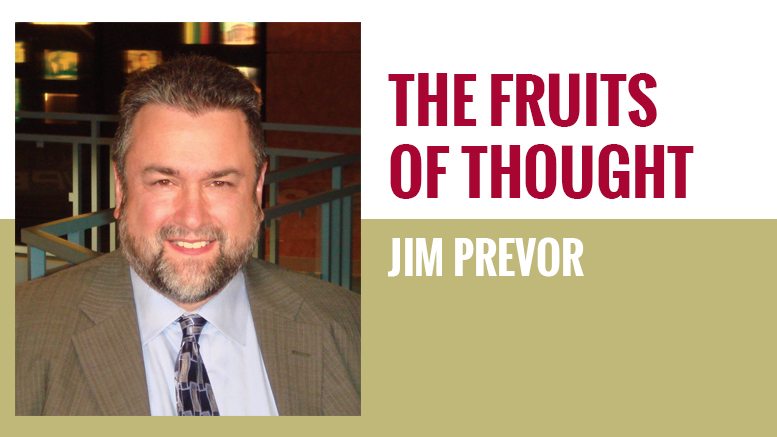NAFTA Discourse Divides Us Again
August 1, 2017 | 3 min to read
The discussion around renegotiating the North American Free Trade Agreement (NAFTA) echoes past debates, highlighting tensions between growers adversely affected by Mexican imports, like Florida tomato producers, and those reliant on trade with Mexico, such as Washington apple growers. While economists largely support free trade for its overall economic benefits, specific industries face unfair competition. The article suggests that political motivations may overshadow genuine concerns, indicating that consumer choice could be at stake in these negotiations.

 Since President Trump expressed his intent to renegotiate the North American Free Trade Agreement (NAFTA), the produce industry discussion reminds one of Yogi Berra’s famous quote, “It’s Déjà vu all over again,” as the arguments have changed little since the original debate over NAFTA, which came into force in 1994.
Since President Trump expressed his intent to renegotiate the North American Free Trade Agreement (NAFTA), the produce industry discussion reminds one of Yogi Berra’s famous quote, “It’s Déjà vu all over again,” as the arguments have changed little since the original debate over NAFTA, which came into force in 1994.
Producers directly affected by Mexican imports, such as Florida tomato growers, point out the difficulties imports cause for the domestic industry and allege various subsidies for Mexican growers creating unfair competition.
Producers in the United States that have export markets in Mexico, such as the apple growers of Washington, point out the importance of keeping export markets open.
And those who do direct trade with Mexico — the importers in Nogales, McAllen and other places along the border — point out the benefits consumers derive from being able to buy the products they wish at the prices vendors, including those from countries outside of the United States, are willing to sell them.
Free trade agreements, which sound like they should be simple documents – “No tariffs between our two countries” — actually turn out to be highly complex. Partly it is because of content. If the United States and Mexico have a free trade agreement, but the United States and Japan do not, well what happens if a car is assembled in Mexico, but most of the parts come from Japan?
It is also unclear what the term “trade” actually encompasses. Is a truck driving cross the border included? Intellectual property protections? What about non-tariff barriers to trade? Requiring packaging in a particular language? For hundreds of years, Germany had its own beer purity laws, which proscribed anything but water, barley and hops in beer. In 1987, however, a group of French brewers brought a case to the European court of justice, which found the German law protectionist and thus a violation of its own free trade agreement – The Treaty of Rome, established in 1958.
We also have a situation where many want free trade only with restrictions, so negotiations may include labor and environmental restrictions and, in all cases, there is a need for dispute resolution mechanisms. Agriculture is so sensitive an area that, in fact, NAFTA has separate clauses related to U.S./Canadian trade and U.S./Mexican trade.
It is hard to see how the industry as a whole can do anything but consider itself open to modernization
of the accords.
Despite the politics, the economics are not really much in dispute. Virtually all economists believe free trade leads to greater prosperity. The problem is those disadvantaged by free trade are obvious and specific, whereas the benefits tend to be more diffuse, and thus people who specifically benefit are harder to identify. In other words, if Florida tomato growers have to close down because they can’t compete effectively, they all have names, their workers have names and their communities are easily identified.
If the benefit to allowing free trade imports in America is that consumers get a less expensive or better quality product, the benefit is tiny to each consumer. Collectively, however, lower prices may mean consumers can take more vacations or buy more cars, but it is hard to specifically say that an individual person got a job at Disney World because consumers in the Northeast got cheaper tomatoes and subsequently went on more vacations.
President Trump built his campaign around the idea that imports were hurting American workers, but the poster boy for this claim was a Midwestern factory worker who, it was claimed, lost a good paying union job to foreign competition – not a low paying agricultural job.
It is not at all clear that NAFTA had much to do with the loss of jobs in the industrial Midwest. There is some argument that by incorporating a lower labor work force into the American production process, America has been able to export more manufactured products than it would have had this option been proscribed.
But, in any case, it is hard to imagine President Trump wants U.S. workers to take harvesting jobs, and it is even harder to believe the president wants to allow immigrants to do the harvesting. So, while growers who feel damaged by NAFTA are, quite reasonably, seeing this as their moment to try to revise the accords, it seems likely these agricultural interests will be thrown under the bus in any negotiations as the administration looks for a face-saving agreement that will allow it to claim it is helping to revive manufacturing in Pennsylvania, Michigan and Wisconsin.
When NAFTA was originally negotiated, it so divided the industry that the United Fresh Produce Association didn’t dare take a position on the issue. Now, institutionalized, it is hard to see how the industry as a whole can do anything but consider itself open to modernization of the accords. In the end, this is a dispute not about policy, but about politics, and if those looking to limit consumer choice win, it will not be by the persuasiveness of their arguments, but by the political force they are able to marshal.
22 of 29 article in Produce Business August 2017

